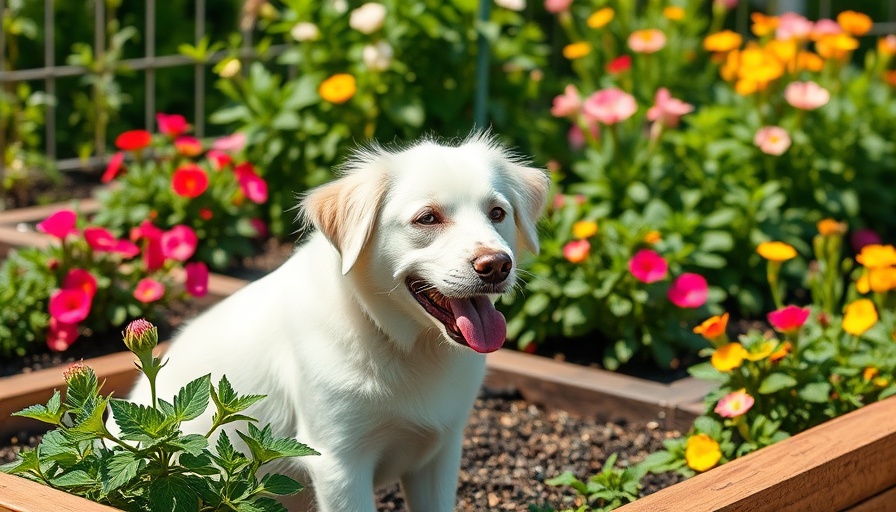
Understanding Aloe Vera and Its Risks
Aloe vera is often celebrated for its healing properties in humans, utilized for everything from soothing sunburns to aiding digestion. However, this beneficial plant poses hidden dangers to our furry companions. While the gel-like substance found within the aloe leaves is mostly safe for dogs, the aloin sap, which is white and sticky, is toxic and can lead to health complications. This often-overlooked aspect makes it crucial for pet owners to differentiate between the gel and the sap for the safety of their pets.
How Aloe Vera Poisoning Occurs
For many households, aloe vera grows as a decorative plant indoors or in gardens, providing easy access for curious dogs. Dogs may chew on the plant itself or ingest products containing aloe sap—making exposure inevitable in some cases. Notably, ingestion of the white aloin sap can lead to gastrointestinal upset, presenting symptoms such as vomiting, diarrhea, and lethargy. If a dog shows any signs of discomfort after such an exposure, immediate veterinary advice is essential.
Recognizing Symptoms in Dogs
Symptoms of aloe vera poisoning can manifest quickly, as the aloin sap acts as a laxative and irritant to dogs’ digestive systems. Pet owners should monitor their dogs closely for signs including:
- Severe diarrhea
- Vomiting
- Decreased energy or lethargy
- Loss of appetite
If any combination of these symptoms arises, it is imperative to consult a veterinarian as soon as possible to evaluate appropriate care.
How to Keep Your Dog Safe
Prevention is key when it comes to safeguarding your pets from aloe vera poisoning. Here are some practical steps pet owners can follow:
- Keep Plants Out of Reach: Ensure that aloe vera plants are placed in areas that are inaccessible to your dog, such as hanging baskets or elevated shelves.
- Read Product Labels: Many skincare products contain aloe vera, but they may include other harmful ingredients. When selecting products for personal care or seeking aloe-based treatments for your dog, scrutinize the labels carefully.
- Educate Family and Visitors: Inform everyone in your household about the potential dangers of aloe vera and the need to keep it away from curious paws.
Alternative Soothing Solutions
For dog owners looking for natural remedies similar to those derived from aloe vera, several safe alternatives exist. Products containing oatmeal, coconut oil, or calendula can provide soothing effects on your dog's skin without the risks associated with aloe. Always consult your veterinarian before applying any new treatment, especially if your dog has existing health issues.
Conclusion: What Every Dog Owner Should Know
Being aware of the potential dangers of common household plants like aloe vera is essential for every dog owner. By understanding the risks and staying proactive, pet owners can ensure a safe environment for their beloved animals. If you suspect a plant-related emergency, don’t hesitate to reach out to your vet or a pet poison help hotline. Your dog’s health and well-being depend on it!
 Add Row
Add Row  Add
Add 


 Add Row
Add Row  Add
Add 

Write A Comment